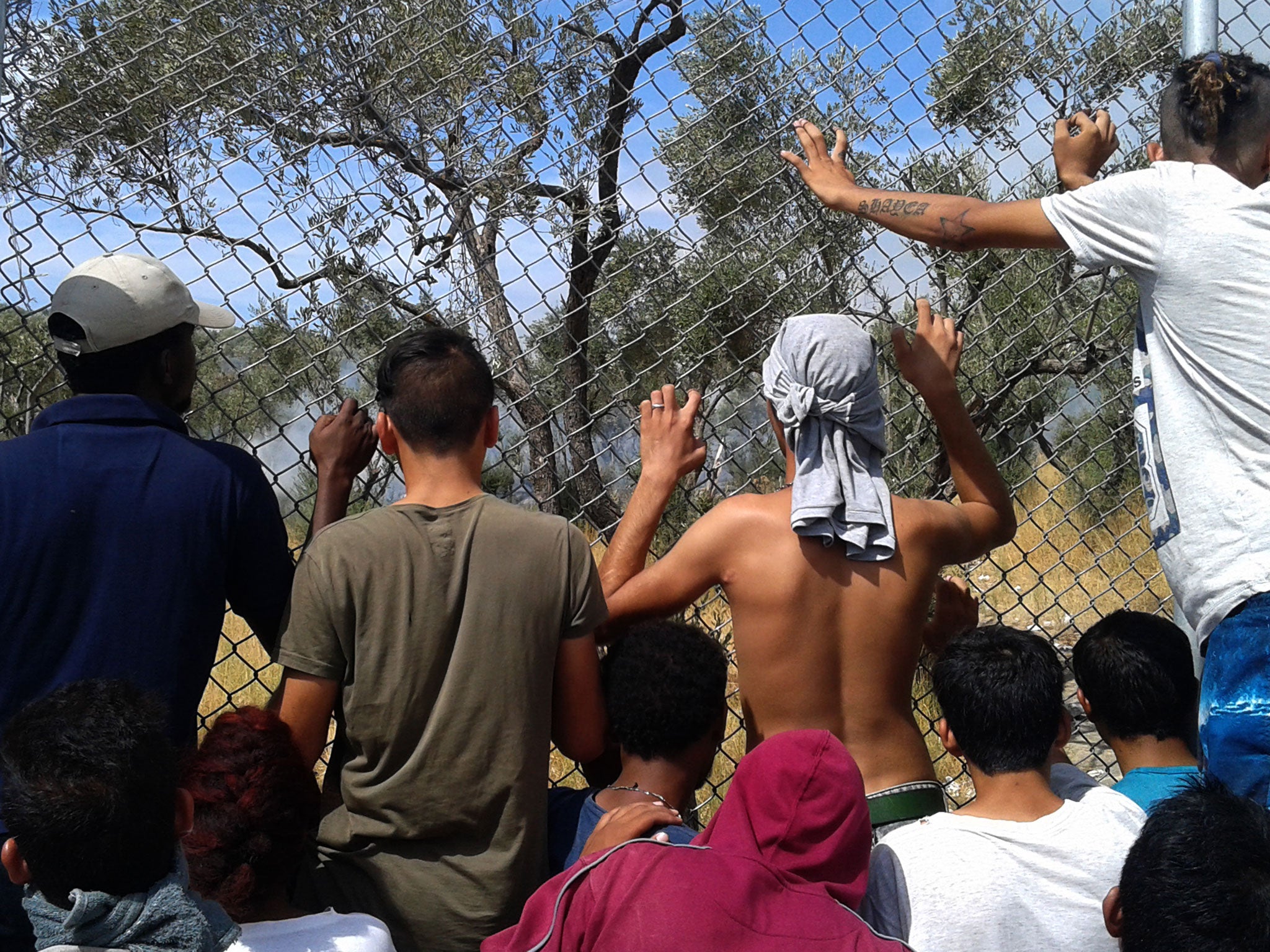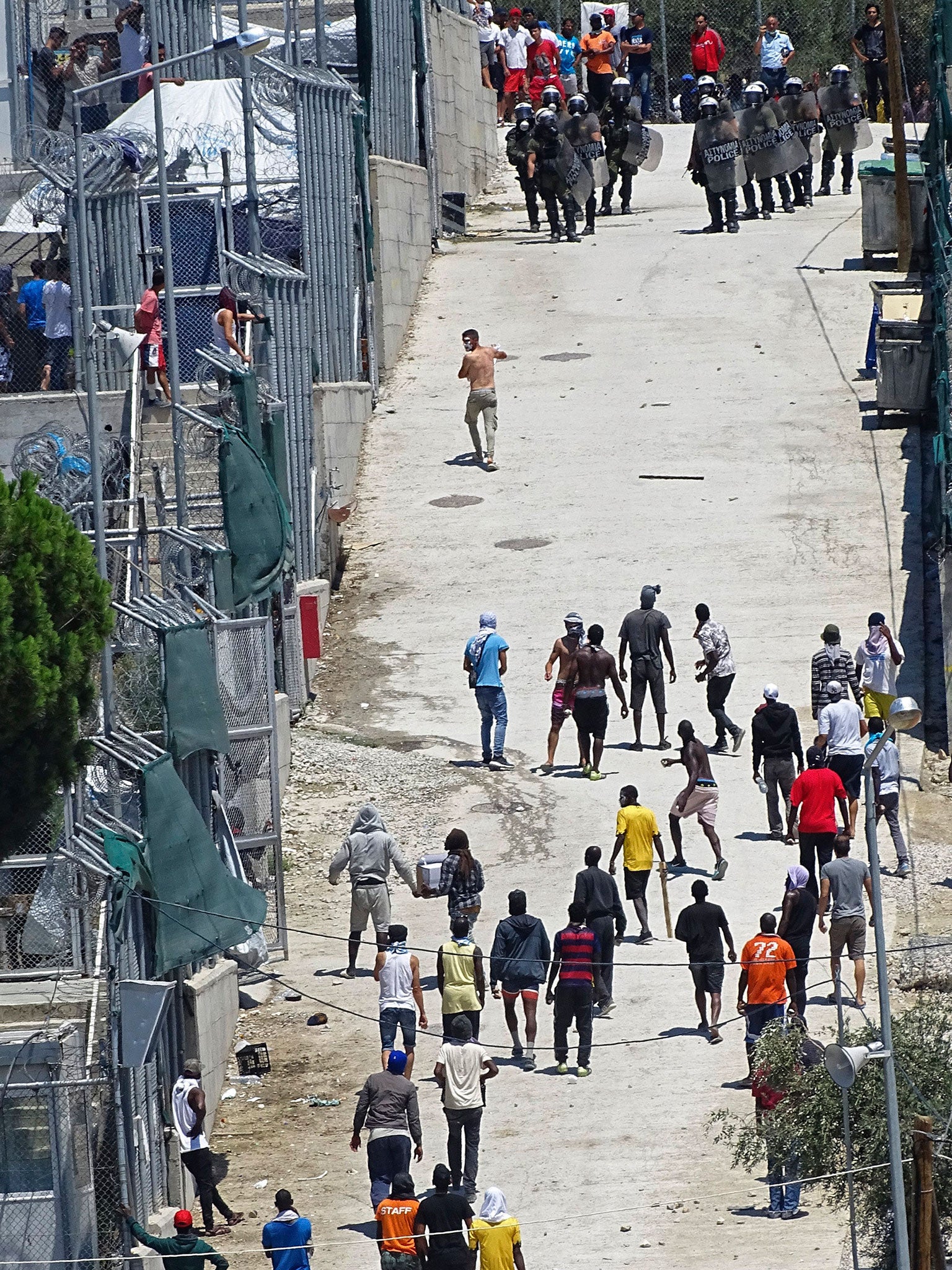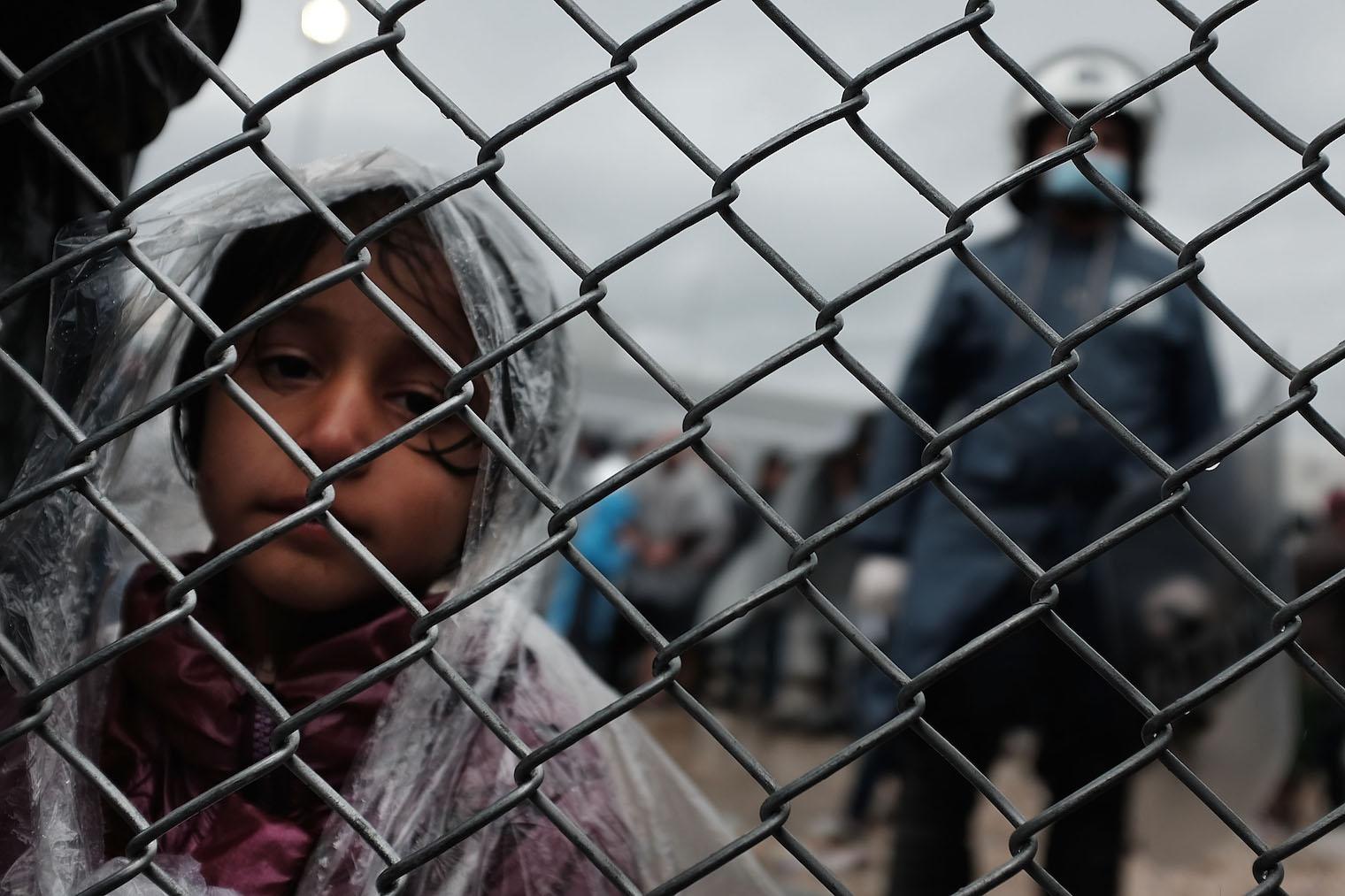Child refugees being wrongly identified as adults and denied care amid suicide and abuse in Greek camps
Report comes amid warnings over rising rates of suicide and self harm on islands

Your support helps us to tell the story
From reproductive rights to climate change to Big Tech, The Independent is on the ground when the story is developing. Whether it's investigating the financials of Elon Musk's pro-Trump PAC or producing our latest documentary, 'The A Word', which shines a light on the American women fighting for reproductive rights, we know how important it is to parse out the facts from the messaging.
At such a critical moment in US history, we need reporters on the ground. Your donation allows us to keep sending journalists to speak to both sides of the story.
The Independent is trusted by Americans across the entire political spectrum. And unlike many other quality news outlets, we choose not to lock Americans out of our reporting and analysis with paywalls. We believe quality journalism should be available to everyone, paid for by those who can afford it.
Your support makes all the difference.Unaccompanied child refugees are being wrongly identified as adults by Greek authorities and denied vital care in squalid camps, a new report has found.
Human Rights Watch (HRW) interviewed children as young as 15, who said they had been denied special protections required under international law.
The group found Greece’s legal age assessment procedure was not being “followed in practice” on the island of Lesbos, which has been at the epicentre of the Aegean refugee crisis.
A Bangladeshi teenager called Akash said he was 17 when he arrived there in summer last year, but was soon removed from camps reserved for unaccompanied children and vulnerable migrants.
“In the beginning, they wrote I was 17 but then they took me to the doctor and wrote down 18,” he added.
“The doctor just examined my teeth… I tried as much as I could, but they never accepted my age.”
Zahid, a Pakistani boy who said he was 16 when he arrived on Lesbos in March 2016, said authorities listed him as 19 without any kind of examination.

“They never explained to me why… I told them I was 16,” he said. “I don’t know why they changed my age. I asked them many times and the only thing they told me is to sign some papers.”
Under Greek law, the government is supposed to appoint a guardian for each child to represent them in legal proceedings, hear their views and act in their best interests, separating minors into designated areas of “hotspot” processing centres.
The Greek Reception and Identification Service (RIS) is responsible for identifying unaccompanied children and other vulnerable groups, with support from the UN, Frontex border agency and EU, and referring them to social services and information.
But HRW said the authority was “failing to meet its responsibilities” and sometimes “arbitrarily” recording ages above those given, sometimes using controversial dental examinations without any other evidence.
Those classified as adults are left to fend for themselves at heightened risk of exploitation, trafficking and other abuse, including prostitution, aid workers have warned.
“They live in official and unofficial sites with unrelated adult single men; are exposed to inhumane living conditions, including overcrowding, unsanitary conditions, and frequent incidents of violence; and are unable to go to school or otherwise access education,” HRW said.
Its staff interviewed 20 asylum seekers who said they had been wrongly registered as adults by Greek authorities on Lesbos, with most reporting teeth examinations but not the interviews with psychologists and social workers required for full assessments.
They are among at least 60 people registered as adults who claim to be children according to other charities active on the island.
Eva Cossé, a HRW researcher for Greece, said: “The misidentification of unaccompanied migrant kids on Lesbos as adults leads to real problems, including lumping them together with unrelated adults and denying them the care they need.
“Greek authorities need to take responsibility for properly identifying unaccompanied children and providing them the protection and care every child needs.”
In some cases, HRW said children had themselves pretended to be adults in the belief they could avoid detention, before realising their mistake and attempting to correct the record – a process that can take so long they pass the age of 18 and lose rights including that of family reunification before it is resolved.
Amid a lack of information and understanding among migrants arriving on boats, some have also been caught falsely claiming to be minors while over the age of 18 in attempts to secure help.
Reports of the trend last year sparked huge debate in the UK, including calls for dental checks from David Davis, although experts have warned the method is unreliable and can be wrong by up to three years.
Denmark’s immigration service said three quarters of asylum seekers claiming to be under 18 tested were found to be adults last year, while the Home Office said two thirds of refugees disputing their classification were shown to be adults by examinations of their “physical appearance and demeanour”.
The arrival of almost one million asylum seekers in flimsy boats over the Aegean Sea since the start of 2015 has left Greece with a chronic shortage of space, which has worsened since the EU-Turkey deal came into force in March last year to see all new arrivals held in island camps.
When there is no space in safe shelters for unaccompanied children, authorities frequently detain them in police stations, immigration detention facilities and asylum processing centres, with 1,149 unaccompanied minors currently awaiting places.
The uncertainty and distress provoked by the process is worsening an ongoing mental health crisis in Greek camps, aid workers said, having already warned of increasing rates of suicide and self-harm.
Samil, an Afghan boy who said he was 14 when he reached Lesbos, spent nine months living in a tent among adults before being transferred to the children’s section in Moria with his brother.
“Every day we were living in fear because of the many fights,” he said.
“I’ve been injured on my shoulder during a fight. Our tent was in the middle and it had been broken and burned twice… I’ve reached a point where I harmed myself three times.”
All children interviewed on Lesbos experiencing psychological distress, suffering from anxiety, depression, headaches, insomnia, and loss of appetite, with two saying they had self-harmed.
Greek officials told HRW that a thorough procedure is followed to establish the ages of asylum claimants, and have not yet responded to The Independent’s request for comment.
The group called on authorities in Greece to bring age assessments in line with international best practice, so proper accommodation, care, education, counselling and legal aid can be given to those who need it.

“Vulnerable kids in Greece who have endured dangerous journeys far from their families should not have to fight for months just to prove they are children,” Ms Cossé said.
“Greece should do a better job identifying these children so they get the care they need and deserve.”
The EU-Turkey deal has dramatically cut the number of refugees arriving on Greek islands as deaths on the longer and more treacherous Central Mediterranean route pass the 2,300 mark.
But arrivals over the Aegean continue, with more than 1,800 unaccompanied child asylum seekers formally registered in Greece in the first five months of 2017, from countries including Syria, Afghanistan, Iraq and Pakistan.
Around 13,000 asylum seekers are currently being held on Greek islands, where 10,000 more have arrived so far this year despite the threat of deportation to Turkey under the country’s controversial deal with the EU.
Research by Save the Children previously found the agreement had dramatically reduced the number of refugees journeying to Greece but had given people smugglers “a firmer grip on a hugely profitable business”.
A study by Harvard University found girls as young as four had been raped in an Athens refugee camp, while asylum seekers elsewhere in the country were selling sex to raise money to be smuggled out.
Meanwhile, a House of Lords report found the Operation Sophia, the EU’s anti-smuggling mission, has “failed” and may have contributed to rising deaths in the Mediterranean.
Around 110,500 migrants have arrived in Europe so far this year by sea, mainly from sub-Saharan Africa, Bangladesh and Syria, with more than 2,300 dying in the attempt.
Subscribe to Independent Premium to bookmark this article
Want to bookmark your favourite articles and stories to read or reference later? Start your Independent Premium subscription today.
Join our commenting forum
Join thought-provoking conversations, follow other Independent readers and see their replies
Comments